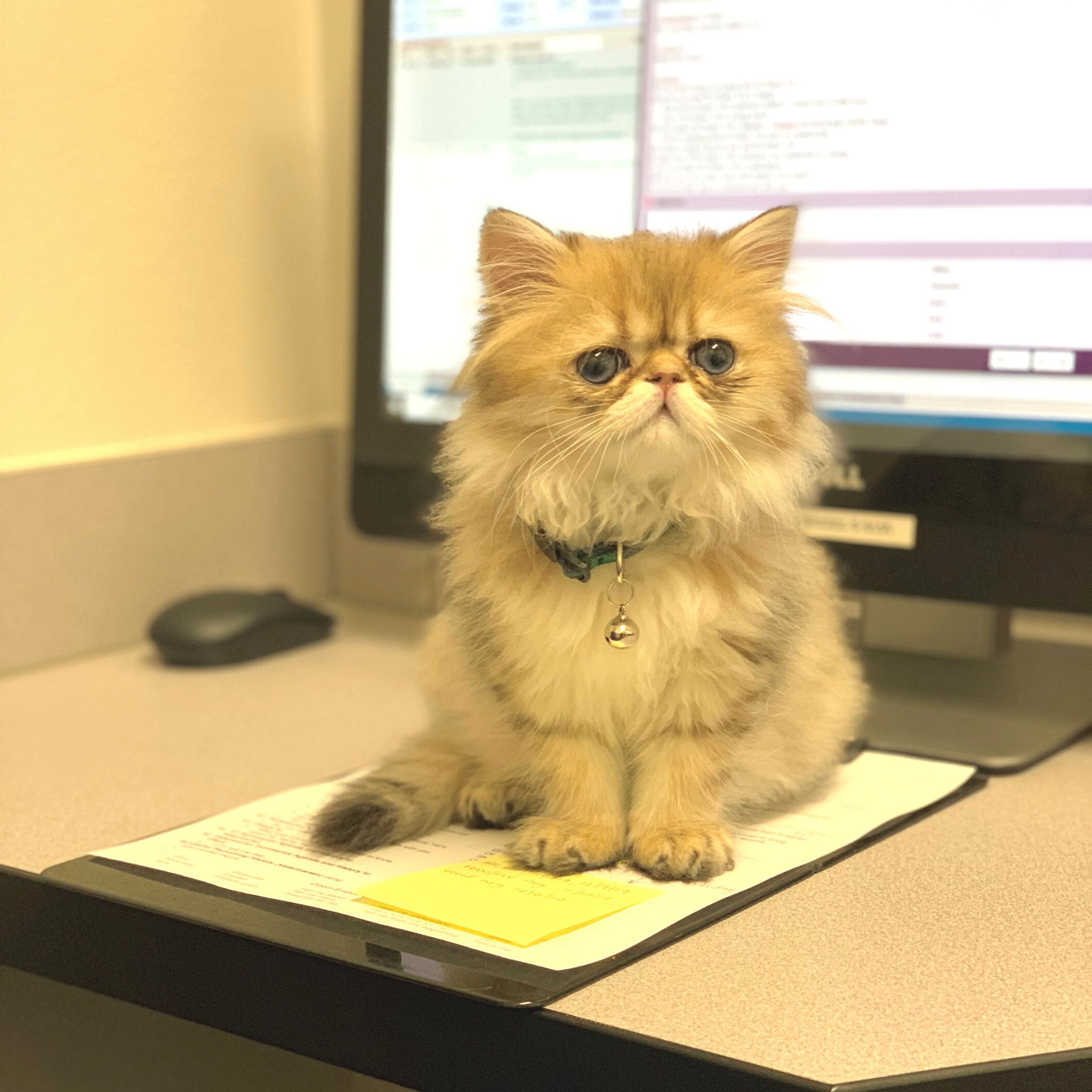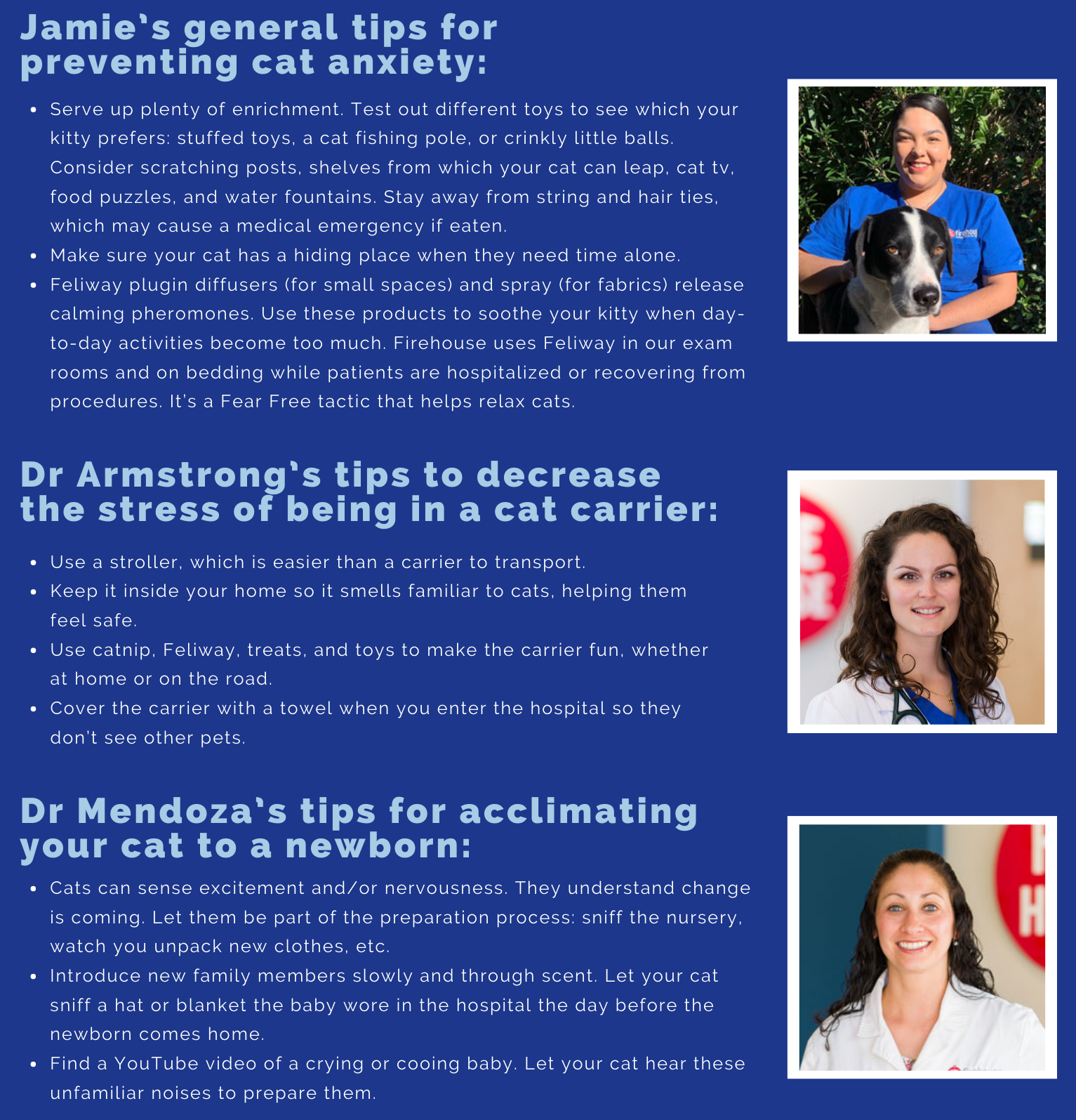4 min read

You know your pet best. Watch for unusual behavior and when in doubt, ask us about it. Gus’s mom noticed his strange behavior and gave us a call.
Sometimes, what seems like a minor change in your household could feel like a major one for your cat.
“Gus is a relaxed and sweet cat,” says DeAndra, a vet tech at Firehouse Belterra. “So, you wouldn’t think a new pet in the house would stress him. Yet, when his parents brought home a puppy, Gus’s mom noticed he began to act out of character.”
“He was yowling (vocalizing), lethargic (not playing), attempting to eliminate in unusual spots (like their sink!) and not acting like his usual ‘chill’ self,’ she explained. “The defining moment was when I saw him straining to urinate and nothing came out.”
Gus’s mom did everything right. She noticed his strange behavior and called us to check in. It turned out that Gus had urinary blockage.
Help your cat relax faster by knowing his or her stress triggers.
Cats are highly sensitive creatures. This means they don’t always react well to change. Both minor and major changes to their routines can lead to anxiety.
Firehouse teaches pet owners about 3 major stressors for cats:
-changes to their environment (like moving homes or adding a new baby)
-changes to their routine
-and adding new siblings (people or other pets) to the household
You know your cat best. Call us if they show any of these 3 common signs. It means your cat is worried. We’ll help rule out medical issues and help solve environmental ones.
1. Urinating and defecating outside the litter box
Anxious cats are more likely to get stress-induced bladder inflammation. And once a cat associates painful urination with the litter box, they often begin to urinate or poop outside of it.
If your cat has started avoiding the litter box, it could be due to their stress or they may have an underlying medical condition.
The solution? Please call us. We want to rule out medical concerns and confirm your cat’s behavior is stress related. Then we can review your lifestyle to see if there’s been a disruption to their routine that we can adjust.
2. Showing signs of physical discomfort
-Call us if your cat has stopped eating, is vomiting, or is having diarrhea. It’s important for a veterinarian to check that there isn’t a hidden medical issue causing stress.
-Overgrooming and pulling out hair is usually a reaction to pain, allergies, or new medicines. In rare situations, it may be a reaction to a stressor. That’s because grooming releases endorphins, making it a pleasant activity for your feline friend.
-Most importantly, call us if your cat’s stress is affecting them so severely that they are not eating, vomiting, or having diarrhea.
3. Acting more reclusive than usual
Worried cats tend to hide. They might also shun interaction with you or other pets in the household.
You may find your cat lurking in their favorite hiding spot more often, or they may set up shop in a dark closet. In addition, they may become aggressive if you try to force them to come out and play.
Call us so we can help you with your individual situation.
April is Stress Awareness Month. It’s a great time to shed light on a cat’s sensitive nature and help prevent stress.
Keep a close eye on your cat to see if they become stressed by changes in your household and contact our team if you notice any worrying signs.

